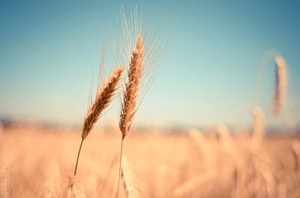Suffering from an illness – especially a chronic one – can be difficult and painful. This pain can be compounded by the arrival of Ramaḍān, where perhaps you are unable to fast, or you are unable to worship Allah (ʿazza wa jall) as you used to when you were healthy.
Hidden Blessings
Like every other test we face in life, illnesses can be a source of blessings: they cleanse your sins, result in huge rewards, and increase your ranks. Illnesses cause you to become humble, realise your weakness and express your need and servitude to Allah — all of which is the essence of ʿubūdiyyah (servitude). They make you appreciate your health, increase your empathy, and help you gain closeness to Allah.
Allah (subḥānahū wa taʿālā) is al-Laṭīf: The Most Kind, and the Most Subtle. There are many things which happen to us, which we find difficult, but only see their blessings manifest themselves in later years. Sometimes, we may not even live to see these. But the reward of it will be far greater and better than we ever imagined, in Jannah inshāAllah.
Sometimes it is in intense pain and sickness that we fully detach ourselves from the world, and attach our hearts to Him. The duʿā’ we make in this extremely testing time is much more heartfelt. Just like the fasting person’s duʿā’ is accepted, the duʿā’ of the sick person and the traveller is also accepted. Ibn al-Qayyim (raḥimahullāh) explains that the secret to why the duʿā’ of these categories of people is accepted is because they turn to Allah broken-hearted and with desperation. It is a moment in which you express your dire need, humility and ʿubūdiyyah (servitude) to Him. Likewise, illnesses can increase our īmān in Allah as we are certain that He Alone can cure us.
Perhaps Allah (ʿazza wa jall) loves to hear the desperation and pleading in your voice. Perhaps your heart has remained unmoved, and your eyes have remained dry over the past years of your life. This may be the year that you shed many tears. This may be the Ramaḍān, where you cannot fast or perform much qiyām, but your tongue is continuously moving with His remembrance. Your heart feels more attuned to His presence, His companionship and His constant kindness to you.
Perhaps the way to pass this Ramaḍān with flying colours is through ṣabr (patience). The reward of ṣabr is unique. Allah (subḥānahū wa taʿālā) informs us,
“Certainly, those who observe patience will be given their reward in full without measure” (39:10).
Attain this by only complaining about your pain to Allah, cry to Him and ask Him to grant you relief.
The Generosity of Allah
Allah (subḥānahū wa taʿālā) is al-Barr: The Most Kind, and He does not burden anybody beyond what they can bear. Thus, He gave the Ummah the dispensation to not fast due to a valid reason, and subsequently to make up for it after recovery. Allah b says, “…But whoever of you is ill or on a journey, then (he should fast) a number of other days (equal to the missed ones)…” (2:184).
There were some companions who did not have the means to join the Prophet ﷺ in the Battle of Tabūk. They did not feel happy at being ‘saved’ from participating in such a difficult and testing time. Rather they were deeply upset. Allah praised them saying:
“But there is no blame attached to the weak, the sick, and those who have no means to spend, provided they are true to Allah and His Messenger – there is no reason to reproach those who do good: Allah is All-Forgiving, Most Merciful. And there is no blame attached to those who came to you [Prophet] for riding animals and to whom you said, ‘I cannot find a mount for you’: they turned away with their eyes overflowing with tears of grief that they had nothing they could contribute” (9:92).
It was their deep sincerity and strong conviction in Allah (ʿazza wa jall) which gained them this accolade. When the Prophet ﷺ was returning from Tabūk, he told his companions, “Certainly there are a group of people in Madinah who, each time you crossed a valley or travelled a path, they shared the reward with you. A legitimate excuse held them back” (Ibn Mājah). Allah al-Shakūr (The Most Appreciative) rewarded them handsomely for their genuine intention, and He recorded their truthfulness with Him, to be read till the end of times.
Similarly, your sadness about missing out on a good deed is an indicator of your īmān inshāAllah. Allah (ʿazza wa jall) will see your sincerity and reward you for that action. Our beloved Messenger ﷺ said, “If a servant falls ill or travels, the likes of what he used to do when he was a resident (i.e. not travelling) and healthy will be recorded for him” (Bukhārī).
If you are not sick – by the grace of Allah – and you are reading this, then take advantage of your health to accumulate good deeds, so that one day when you are not physically able to perform them, you will still be rewarded for them.
Focus on What You Can Do
Throughout this month, don’t let Shayṭān cripple you from doing the good that you can do, just because you are not able to do certain good deeds (e.g. fast/pray qiyām standing). There are some acts of worship which are easier to do than others. For example, you may not be able to stand for long in the night prayer but you can lie on your bed and do dhikr. Perhaps you cannot fast but you can spend the day reciting the Qur’ān. Perhaps you are too exhausted to recite the amount of Qur’ān that you usually would have, but you can still listen to the Qur’ān.
Don’t let guilt stop you from doing the ʿibādah that you can do. This is your Ramaḍān and Allah knows your innermost secrets and thoughts.
There is no shame in not fasting if you are medically unable to do so. Illnesses come in many forms. If you are in doubt, please speak to a qualified Muslim professional and a scholar who can advise you whether to fast or not. This also includes mental illnesses. Sometimes, a dramatic adjustment to dosages can have a very harmful effect, and it is best to check with a Muslim professional about whether you should fast or not.
To those who are fasting, please treat those who are not fasting (due to a valid reason) with compassion, and do not make them feel worse than they are already feeling.
May Allah al-Shāfī (The Healer) make our illnesses a means of attaining His love and forgiveness. May He cure our bodies and hearts.






